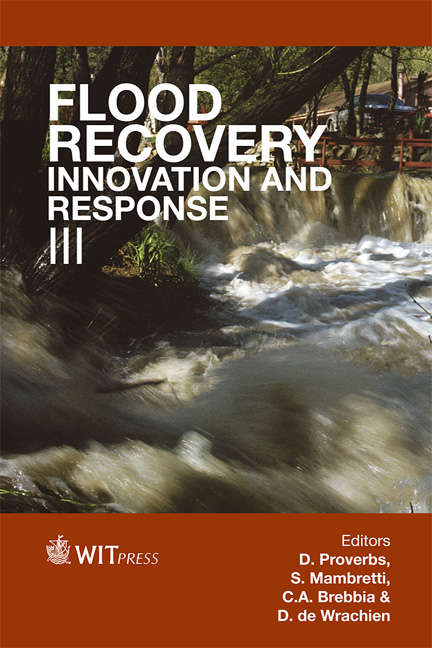Ontology For Flood Management: A Proposal
Price
Free (open access)
Transaction
Volume
159
Pages
11
Page Range
3 - 13
Published
2012
Size
628 kb
Paper DOI
10.2495/FRIAR120011
Copyright
WIT Press
Author(s)
D. De Wrachien1, J. Garrido2, S. Mambretti3 & I. Requena2
Abstract
Floods are very complex phenomena involving a large number of players. In this context not only the hydrologic and hydraulic studies are required, but also those related to vulnerability assessment, town and emergency planning as well as all the matters related to the economic issues: damage, insurance and the psychological diseases which can arise after flood events. Thus, people with widely different roles, backgrounds, and profiles are in charge of each phase of a large number of complex procedures. Not surprisingly, communication problems often arise because different names may be used to refer to the same concepts. Moreover, relevant information can vary, depending on the user. Effective communication is essential since the results produced by a person in a certain phase of the process can be the input that another person needs in the next phase, i.e. raw data versus elaborated data, forecasting versus impact evaluation, level of detail, hazard assessment, vulnerability assessment, economic evaluation, environmental assessment, etc. Ontologies, which can be defined as an explicit representation of a conceptualization, are tools that can be used to solve such very complex and interdisciplinary problems because they specify a conceptual framework or terminology. The paper introduces an ontology for floods. This ontology is developed using the existing Environmental Impact Assessment (EIA) ontology and it is represented with OWL-DL (Web Ontology Language – Description Logics). Among the different causes for flood, only those related to river overflows are taken into account in the ontology so far. It is shown as ontologies are useful
Keywords
hazards, floods, knowledge representation, brief ontology





